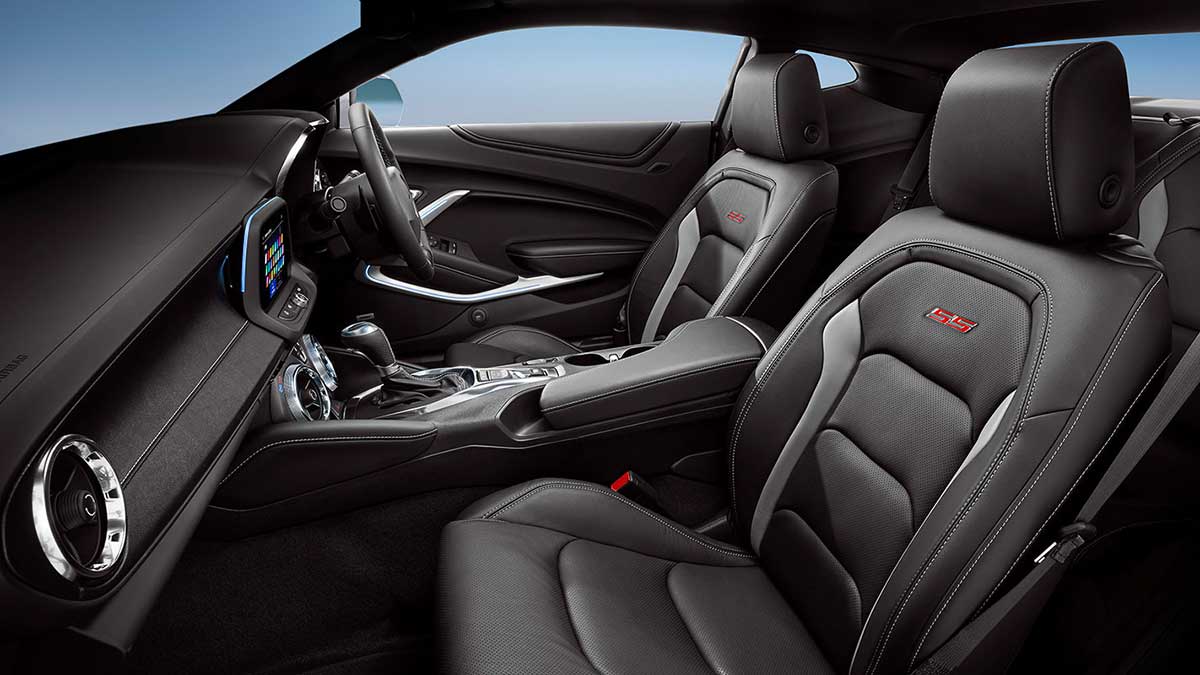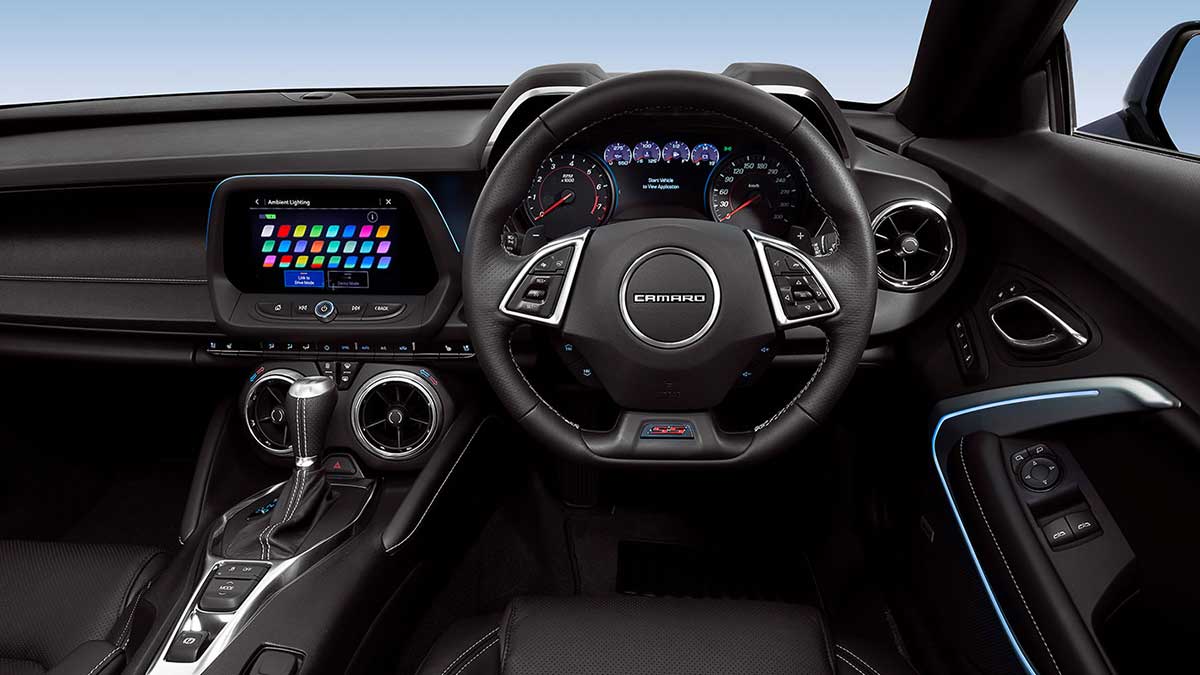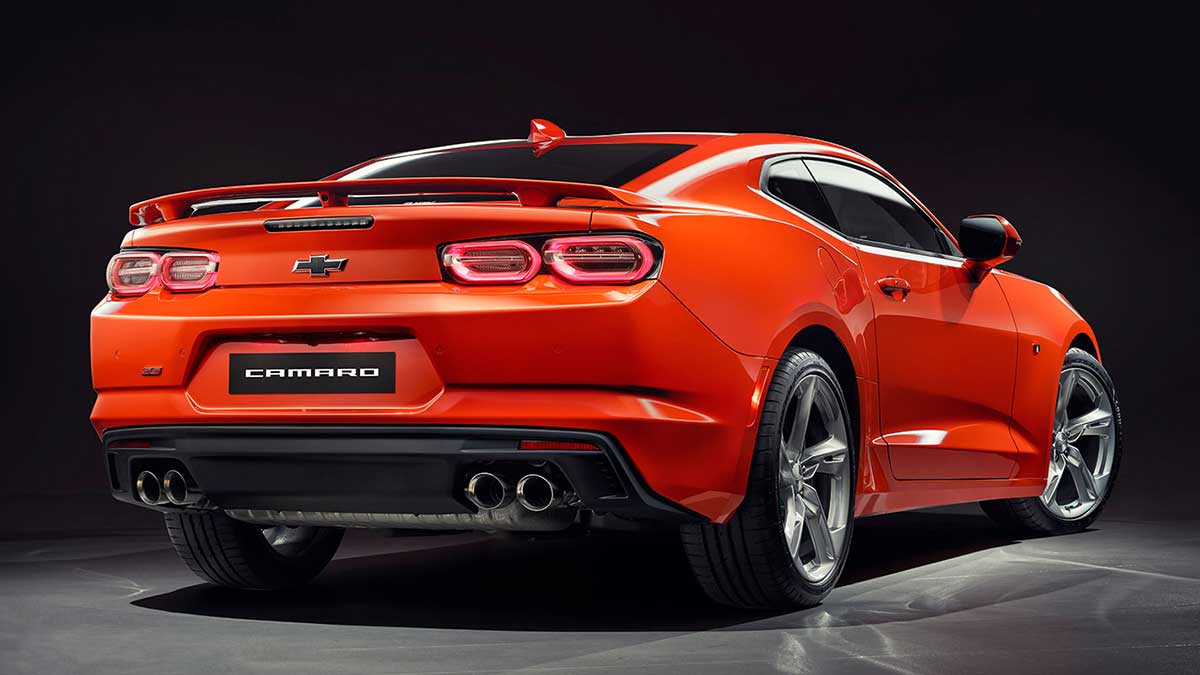SUVs have overtaken station wagons, sedans and hatches as the go-to family car over the past decade, but are they really the better option?
Chevrolet Camaro 2SS 2019 road test review

Tim Nicholson road tests the brawny, head-turning Chevrolet Camaro 2SS.
With all of the recent talk in Australia of hybrids and electric vehicles, it’s easy to forget that there has been something of a renaissance of big, brawny V8 American muscle cars.
Ford kicked things off a few years ago by importing the popular Mustang. Fiat Chrysler Automobiles have toyed with the idea of offering the Dodge Challenger and Charger, but they are left-hand-drive only and unlikely to make it here in their current generation.
The other contender is the Chevrolet Camaro. It too is left-hand-drive only, but thanks to the clever people at Holden Special Vehicles (via parent company Walkinshaw Automotive Group) it has been converted to right-hand drive in Melbourne at HSV’s high-tech Clayton facility.
Thumbs up
Raw performance from beast of a V8 engine, jaw-dropping looks, unapologetic American muscle car.
Thumbs down
Questionable interior design choices, visibility, killer at the petrol pump.
HSV also converts the hulking Chevrolet Silverado full-size pick-up, while Walkinshaw is responsible for converting the RAM 1500 pick-up. Automotive mass-production might be dead in Australia, but HSV is proving that niche manufacturing is alive and well.
With the imminent end of the Holden brand in Australia, expect HSV to rebrand and maybe even add some other American-sourced GM models to its roster to convert and sell here.
But back to the Camaro. HSV launched the legendary nameplate here in September 2018 and since then it has benefited from a mild 2019 facelift that included fresh front-end styling.
The Camaro is offered in two grades – 339kW 2SS from $86,990 before on-road costs for the manual, and the blisteringly powerful 477kW ZL1 with a massive step up in price to $159,990. Swapping the manual for an automatic transmission adds $2200.
The Ford Mustang is the Camaro’s closest rival and in V8 guise it starts at $63,690, more than $20,000 cheaper than the Chevy. Granted, the Camaro costs more because it is converted in Australia for RHD, whereas the Mustang comes in RHD from the Michigan factory.
The Camaro has loads of standard equipment to make up for the high entry price. On the flipside, it misses out on safety gear that the Mustang has, such as autonomous emergency braking, but it does have a forward-collision warning and rear cross-traffic alert.
Our test car looked menacing in black, like a cross between the Batmobile and KITT from Knight Rider. And it got a lot of attention.
Inside, visibility isn’t great. The cabin feels closed in and the massive haunches, big B- and C-pillars and tiny rear windscreen impede vision. But most of this is typical of a low-slung sportscar.
Chevrolet is clearly going for a retro look with the dash and large circular air vents, but there’s a lot of black plastic and it’s all very busy and a bit early 2000s.
The only giveaway that this car was converted to RHD is the infotainment screen, which is angled towards the passenger. It’s also awkwardly angled downwards for some reason.
The sports seats are firm but supportive and we love the chunky sports steering wheel.

Chevy’s infotainment system will be familiar to current-model Holden owners – all part of the GM empire. It’s functional and easy to use but lacks a digital radio.
The positioning of the front seatbelt is annoying if you want to use the back seats and the front power-seat mechanism to move it forward is glacially slow. There is very little room back there for anyone but toddlers. The rear pew is really an afterthought, but it’s unlikely to get much use beyond a parcel shelf anyway.
At 257 litres, the boot isn’t huge, but it’s deeper and longer than you’d expect.
The first thing you notice when you start the Camaro is the deep growl of the 339kW/617Nm V8. Hearing it in full flight is something else.
The Camaro 2SS offers visceral performance, packing quite the wallop with virtually instant throttle response that forces you back in your seat, and maintaining that even when faced with a steep hill. It reaches the speed limit with such ease that you have to wonder why you’d bother paying the extra for the ZL1.
The way the Camaro gets its power to the ground is impressive, but it can get its tail out mid-corner if you’re not careful. The traction-control system ensured there was never a sense of losing control.
It has four drive modes (Tour, Sport, Track and Snow/Ice) and Sport mode ups the wick considerably. The default Tour mode offers more than enough performance.
The steering is weighted on the heavier side, which is a chore around town but perfect for higher speeds and dynamic driving. It’s still very sharp despite the heft.
The performance suspension tune makes for a busy ride. It’s jittery on average roads and the low-profile tyres aren’t great for speed bumps and the like in urban areas. Unlike other performance cars, however, you can live with it.
Chevy’s 10-speed auto occasionally holds lower gears, but it’s otherwise a slick shifter.
With fuel figures of 13 litres per 100 kilometres (government test), 15.2L/100km (RACV test) and CO2 emissions of 306g/km, you could say the Camaro is the anti-EV.
The verdict
The Camaro is big, loud and brash, but that’s its appeal. Few cars these days stir passion like this. It’s old-school motoring at its best.
|
Price |
List price: $89,190 plus on-road costs. Price as tested: $89,190 plus on-road costs. Model range: $86,990-$162,190 plus on-road costs. |
|---|---|
|
Drivetrain |
6.2-litre V8 petrol engine, 10-speed automatic transmission, rear-wheel drive. Power: 339kW@6000rpm. Torque: 617Nm@4400rpm. Wheels: 245/40 ZR20 (front) and 275/35 ZR20 (rear). |
|
Fuel |
98 RON premium petrol, 72-litre fuel tank. Consumption: 13L/100km (government test), 15.2L/100km (RACV test). Emissions: 306g/km CO2. |
|
Safety |
Eight airbags, rear cross-traffic alert, forward-collision alert, blind-spot warning, tyre-pressure monitor, reversing camera and rear parking sensors. |
|
Features |
Keyless entry and start, head-up display, heated sports steering wheel, heated exterior mirrors, eight-way power-adjustable driver’s seat, heated and ventilated front seats and nine-speaker Bose sound system. |
|
Warranty |
Three-year/100,000km warranty. Servicing schedule every 12,000km or nine months. |



-1200x675.jpg)


